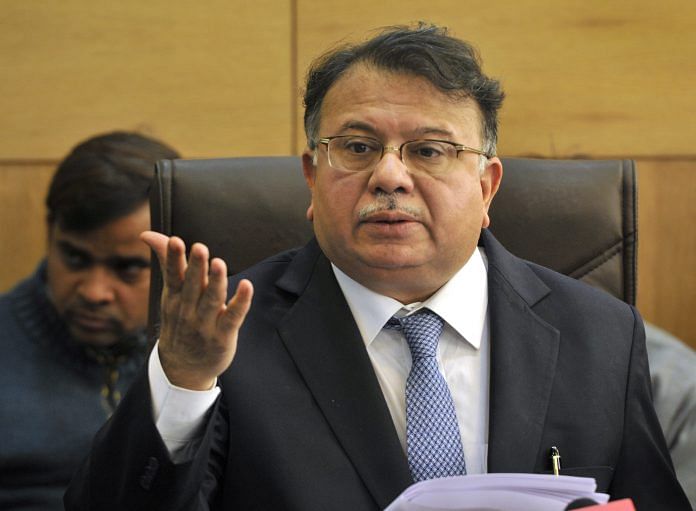Shah was particularly critical of the handling of the investigation into judge Loya’s death, questioning the SC’s decision to dismiss pleas seeking a fresh probe.
New Delhi: Former Delhi High Court Chief Justice A.P. Shah has become the latest judicial luminary to express concern over the current state of affairs in the Indian judiciary.
“Our judiciary is going through an extremely volatile phase, and one that I haven’t seen in some years,” Justice Shah said, speaking at the launch Tuesday of former union minister and journalist Arun Shourie’s book Anita Gets Bail, which seeks to show “how frail and vulnerable” the judiciary had become.
Shah said Shourie had done what most people couldn’t: “Calling out” the judiciary, adding that it couldn’t have come at “a more appropriate time”.
“I can only hope that the powers that be read these essays with care and indulge in some self-reflection,” he said.
The judiciary has been at the centre of a deep credibility crisis of late, with some of the Supreme Court’s most senior judges questioning the Chief Justice of India’s functioning.
Shah said the judiciary had evolved into a body that was “completely soulless and cold-spirited.”
“On the one hand, you have the courts subjecting regular people to the distressing mores of criminal procedure, on the other hand, the rich and powerful have taken the judicial system for a ride,” he added.
Speaking at the same event, former CJI R.M. Lodha had expressed similar concerns as Shah.
On judge Loya
Shah was particularly critical of the handling of the investigation into judge Loya’s death. A special CBI judge hearing the Sohrabuddin Sheikh ‘fake encounter’ case, Loya died in 2014 while in Nagpur with other judges for the wedding of a colleague’s daughter. There have been allegations of foul play in his death, since one of the accused in the encounter case at the time was BJP chief Amit Shah. He was subsequently discharged.
The Supreme Court recently dismissed petitions seeking an independent investigation into Loya’s death.
“The judgment — in my opinion — is utterly wrong, and jurisprudentially, incorrect on so very many counts,” he said.
“Another thing which is remarkable about this case is that the court called it a ‘veiled attempt to launch a frontal attack’ on the judiciary. But how did they come to this conclusion — all that the… petitioners asked for was that the death of a judge should be inquired into. How does this become an attack on the judiciary?
“More problematically, the Supreme Court has evolved a whole new jurisprudence regarding the statement of a judge. It says that the statements of judicial officers should be accepted on the face of it, as their statements have a ‘ring of truth’ about them.
“Note that these statements made by the four judges who accompanied judge Loya to Nagpur were not made in their capacity as judges, but about their personal knowledge of what happened in Nagpur. Nobody has seen their statements. However, the ring of truth still exists, and therefore the court has decided that these statements should be accepted.
“It is as if judges are to be treated as superhuman, as beings who are not capable of telling untruths.
“This is an entirely new principle that has been evolved that a testimony is accepted, not because the person is telling a truth, but because that person is of a certain status,” he noted.
On lower courts
Lamenting the condition of the lower judiciary, Justice Shah cited a low judge-to-population ratio, poor infrastructure, and an “unsupportive executive” as the major issues.
“Even when the judicial system is dedicated to solving a problem, glitches appear,” he added.
Shah suggested that instead of dedicating so much time to the reportage of the higher judiciary, journalists should spend a day in a lower court.
“At least, then, some of us may understand better as to what is happening with the state of justice in India today. And maybe a smaller percentage of us will try and do something to change this,” he said.
Read his full speech here



